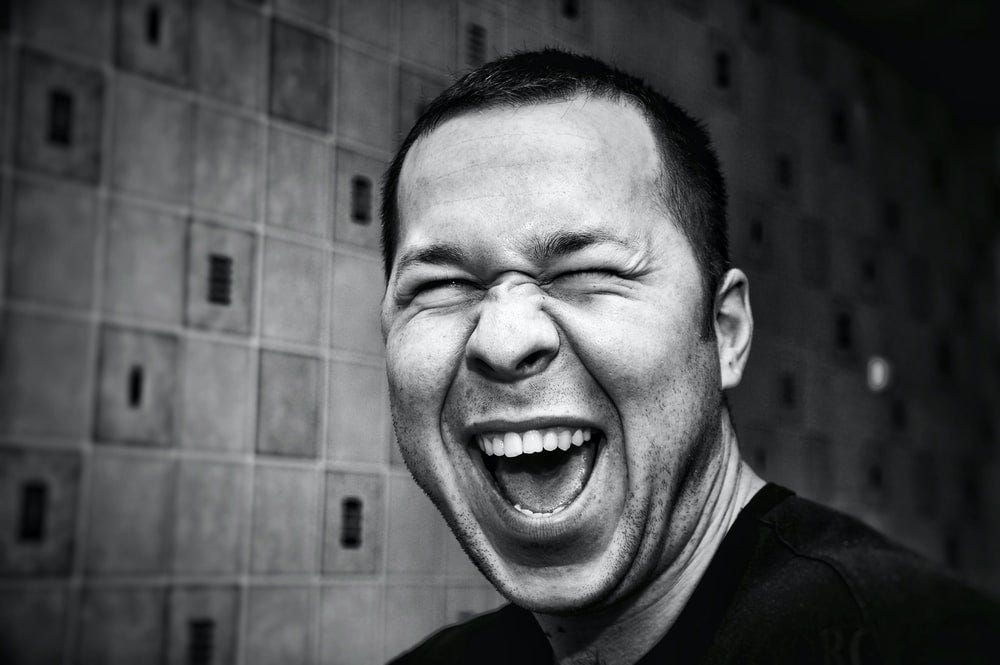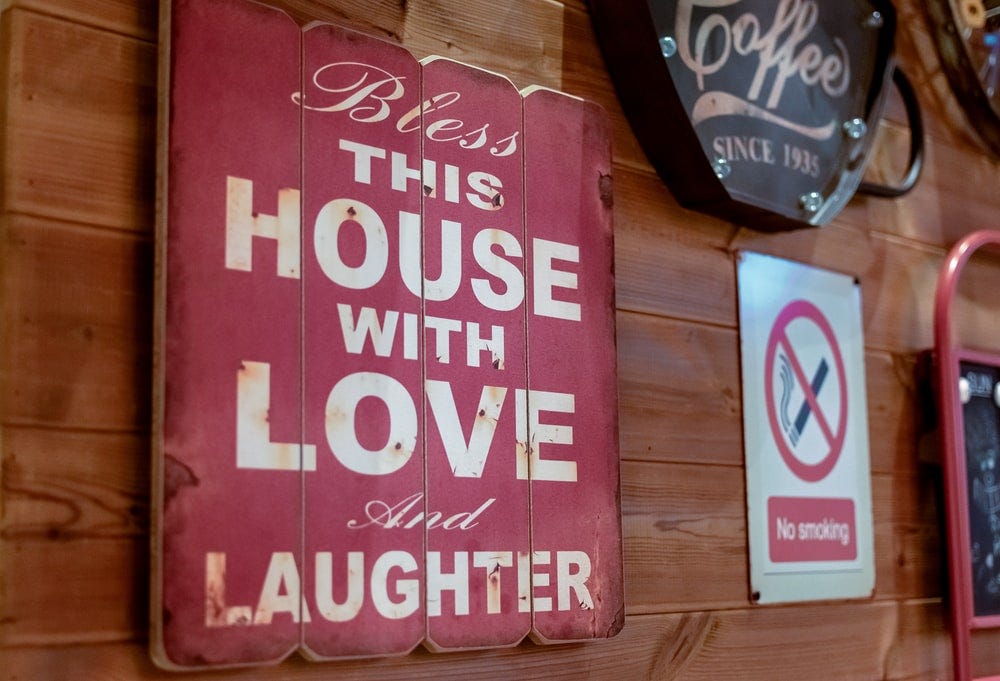Filter Coffee #080
On Laughter as the Best Medicine
Dear Readers,
Thank you for your very interesting comments on FC #79 which featured ‘The Dentist’s Chair’.
I posted FC #79 on 2nd January from Dubai, a place I haven’t been to in a while. I spent Monday through Thursday, 6th Jan, meeting people and taking the very efficient Dubai Metro to the Expo, which was indeed a wonderful sight — though the Indian pavilion was a bit disappointing.
On the 5th we had to get the PCR test done and do a self-declaration on Air Suvidha in order to fly Emirates on the 6th. It was a good experience to get the test done at a drive-in facility. Until the ‘negative’ results came we were a bit apprehensive of a 14-day quarantine in a faraway country.
I returned on the 7th morning and did not have much time to post this edition. But I was determined not to break the chain, though this edition may come across like ‘kamzor kadi’ (weak link). Are you laughing? Well…
🤣 Laughter is The Best Medicine
All of you would have come across people who tell ‘poor jokes’ (PJs). People’s reactions to a PJ are varied. Some snigger, others say ‘childish’, while others just smile. Some even hit their head or reach for something handy to throw at the teller.
The ‘poor joker’ is quite thick-skinned and is unperturbed by the grimaces (and not grins) that he gets in response to his PJ. I say this with some authority as I am known to be a die-hard PJ teller. The problem is with the people around me who can read my face and, when they realise I am going to tell them a PJ, scream, “Noooo!” But I won't give up. Like right now, say I ask you, “Do you remember when I told you the joke about my spine?” If you shake your head, I would say, “a weak back”.
What foxes me is the reluctance of some people to laugh at poor jokes, which are not the same as bad jokes that make fun of people. One must have a sense of humour to be able to laugh at situations and to laugh at oneself. Shailaja shared this little joke:
Dentist: What filling would you like?
Patient: Chocolate, please!
Then there are hundreds of ‘knock knock’ jokes which are of the same genre as PJs but with a slight twist on the word used. They are also called Dad jokes — as if only Dads make them up! (Please don’t ask my children, they might agree. They used to laugh at all my jokes for fear of pocket money being cut for every joke not laughed at.)
Try these:
Knock, knock!
Who’s there?
Opportunity.
Opportunity who?
Fooled you! Opportunity knocks only once.
Knock, knock!
Who’s there?
Lettuce.
Lettuce, who?
Lettuce in, we are feeling cold.
There are a few ‘dhak dhak” jokes in Hindi as well. Like this one:
Dhak Dhak!
Kaun Hai?
Agarwal.
Agarwal kaun?
Agar wall nahi hota to makan gir jata!
Some jokes are in a riddle form, for example:
Q: What did one telephone tell another?
A: Let us exchange rings and get engaged.
Q: Why are the tomatoes red?
A: They saw the salad dressing and blushed.
Paronomasia is the technique of making a pun using the different meanings of words. I love punning, which essentially is a play on words. It is fun. Unlike a PJ, punning requires quick thinking and seizing the moment. It cannot be done out of context. Remember, if you have a quick wit, to make a pun you are fit! The following, by Samuel Johnson, makes a fine reading:
A pun is the lowest form of wit,
It does not tax a brain a bit;
One merely takes a word that’s plain
And picks one out that sounds the same.
Perhaps some letter may be changed
Or others slightly disarranged,
This to the meaning gives a twist,
Which much delights the humorist.
A sample may now help to show,
The way a good pun ought to go:
“It isn’t the cough, that carries you off,
It is the coffin they carry you off in.”
Paronomasia helps you provide unanticipated meanings to words and make them witty and humourous. It can be deftly deployed as a source of pun and provide comic relief during a stage performance. Just as the joker would do in a circus in between stunts that bring your heart to your mouth. Paronomasia is also found in limericks.
According to ‘yourdictionary.com’ limericks were in vogue as early as the 1700s and were embedded in folk songs. Edward Lear, a famous British poet, is widely considered the father of the limerick. He popularized the limerick form and he wrote some of the best. Here’s one:
There was an Old Man with a beard
Who said, "It is just as I feared!
Two Owls and a Hen,
Four Larks and a Wren,
Have all built their nests in my beard!"
Regardless of age and gender, it is humour in any form that keeps you young at heart and creative in mind. So, keep the kid in you alive and giggling. Jokes are a stress buster and, if you ask me, making and enjoying puns fights dementia. There is some proof for this in what Max Eastman said:
A pun is a practical joke played upon the mind,
Not by means of deceptive meaning,
But by means of a flaw
In the vehicle of meaning.
George Bernard Shaw too had a liking for limerick. Read this one:
Langford Reed saved the limerick verse,
From being taken away in a hearse.
He made it so clean
Now it's fit for a queen,
Re-established for better or worse
There are many jokes in vernacular languages but they cannot be translated into English and still retain the punch. However, I can think of one in Tamil which when translated reads thus:
Customer: Hello waiter, I want a paper dosa.
Cheeky waiter: Ruled or unruled, sir?
Dear Readers, the paucity of time made me take refuge in mirth and produce this ‘Nothing to Laugh At’ edition. If you would like me to write more about each category of laughter, let me know.
These are difficult times. Keep smiling. Stay in the living room, you won’t die from laughing. See you next week. Cheers!





K.V.Jagannathan (popularly known as Ki.Va.Ja) was a Tamil Scholar who marvelled in (well meaning) puns. His impromptu repartees were very popular. He was editor of Tamil monthly magazine Kalaimal. N.S.Krishnan and T.A. Madhuram (husband wife pair) were popular comedy actors. In a film when asked by Madhuram whether coffee or tea is required, the reply will be "teeye Madhuram" which means Tea willbe good/better.
Delightful Pras, enjoyed reading it. A very you piece :)